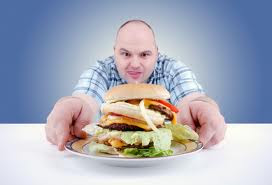We all know eating foods high in fat can lead to so many health complications, from obesity to heart disease. It has been drilled into our minds over and over again, and yet, somehow we don't want to give up those tantalizing treats. But according to researchers at the University of Washington, a high fat diet can lead to one more scary ultimatum: brain damage.
Dr Michael Schwartz, a professor of medicine at the University of Washington, has lead a series of clinical studies in rodents and humans looking at the relationship between a high fat diet and the evidence of brain damage. He is the senior author of a paper published Wednesday, January 4, 2011 in the Journal of Clinical Investigation.
The study has shown that after eating a high-fat meal, evidence of brain injury begins to appear after only 24 hours. If individuals keep eating those high-fat foods continuously, the area of the brain that regulates weight, the hypothalamus, will show evidence of serious inflammation and structural damage. The researchers say they've found the very first evidence that "hypothalamic neuron injury" (basically, this means injury to hypothalamic nerves) is associated with obesity caused by a high-fat diet in humans. But what does this injury mean? What are the side effects?
First of all, let me repeat what I mentioned prior. The hypothalamus regulates body weight. This means injury to the hypothalamus could potentially cause an individual to be unable to internally regulate their own weight. Every person is born with a genetic "set weight" that your body tries to maintain during the duration of your life. This is why it is literally impossible for everyone to be the size of a fashion model, some people's set weights just won't allow them to be that skinny. This inflammation that occurs in the hypothalamus disrupts that ability, so it is that much more difficult to get back to that set weight.
 Obese individuals seem to be biologically defending their elevated body weight. It seems that the injury that occurred in the hypothalamus not only causes them to be unable to regulate their genetic set weight, but that injury also proposes a new set weight, one that is elevated to be comparable to their obese nature. It may help explain why dieting and exercise often lead right back to a higher weight for obese individuals.
Obese individuals seem to be biologically defending their elevated body weight. It seems that the injury that occurred in the hypothalamus not only causes them to be unable to regulate their genetic set weight, but that injury also proposes a new set weight, one that is elevated to be comparable to their obese nature. It may help explain why dieting and exercise often lead right back to a higher weight for obese individuals.The best diet is the one you don't know your on. This research proves that eating a healthy diet and leading an active lifestyle can help you stay out of the yo-yo dieting spiral. What can we do to make sure we don't get caught in the spiral? Prevention, prevention, prevention!!! Once you get to that obese point, it seems there is no bouncing back.
Sun-Dried Tomato Stuffed Chicken
Try this lowfat and brain-boosting chicken recipe!
Makes 4 servings:
1 pound skinned and boned chicken breast halves (4 breast halves)
1/2 teaspoon salt, divided
1/2 teaspoon pepper, divided
1/2 of an 8-ounce package reduced fat cream cheese
3 garlic cloves, minced and divided
1/4 cup chopped sun-dried tomatoes (not in oil)
1/2 cup chopped fresh basil, divided
1/4 cup shredded Parmesan cheese
Vegetable cooking spray
6 roma tomatoes, chopped
2 teaspoons olive oil
2 teaspoons red wine vinegar
1.) Place chicken between 2 sheets of heavy-duty plastic wrap, and flatten to 1/4-inch thickness using a meat mallet or rolling pin. Sprinkle evenly with 1/4 teaspoon salt and 1/4 teaspoon pepper.
2.) Stir together cream cheese, two-thirds of minced garlic, and sun-dried tomatoes. Spread cream cheese mixture evenly over one side of each chicken breast, leaving a 1/4-inch border. Sprinkle 1/4 cup basil and Parmesan cheese evenly over breasts; roll up, jellyroll fashion, and secure with wooden picks, if necessary. Arrange in an 8-inch-square baking dish coated with cooking spray.
3.) Bake at 350° for 30 to 45 minutes or until chicken is done. Remove from oven, and let stand 10 minutes.
4.) Stir together chopped tomatoes, olive oil, vinegar, remaining 1/4 teaspoon salt, remaining 1/4 teaspoon pepper, remaining one-third minced garlic, and remaining 1/4 cup basil.
5.) Cut chicken into slices. Serve with tomato mixture.
Per Serving:
Calories = 284
Fat = 11g (Saturated fat = 5g)
Protein = 33g
Carbohydrate = 14g
For more information visit:
http://seattletimes.nwsource.com/html/localnews/2017122171_brain30m.html
http://www.jci.org/articles/view/59660



No comments:
Post a Comment